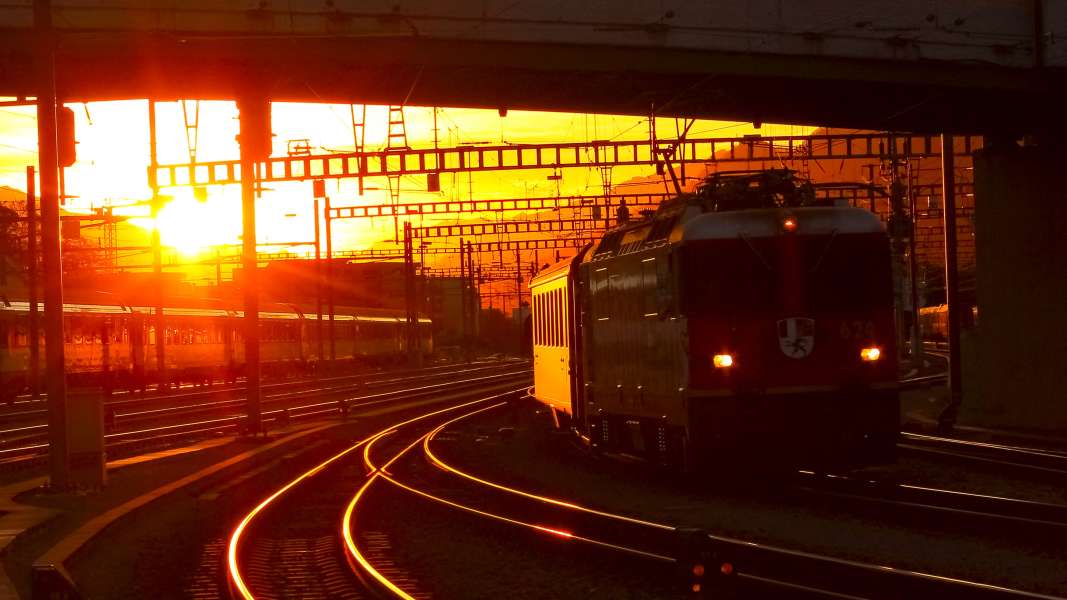Network Rail is one of the largest railway infrastructure providers in the world. It is the owner and infrastructure manager of the railway network in England, Wales, and Scotland. They are responsible for maintaining and enhancing the network, as well as managing train operations.
In this article, we'll go over some of the most common video interview questions that you may be asked during your Network Rai job interview. We'll also give you some tips on how to answer these questions so that you can make a great impression on your interviewer.
1. Why do you want to work for Network Rail?
This is your chance to sell yourself and your skillset to the interviewer.
When preparing your answer, think about what it is that appeals to you about working for Network Rail. Is it the company's commitment to safety and efficiency? The opportunity to work on large-scale projects? The chance to develop your skills in a particular area? Whatever it is, make sure you mention it in your answer.
2. What do you know about our organization?
Network Rail is a complex organization, so the interviewer wants to know that you've done your research and understand the company's structure and operations. Take some time to read up on the company before your interview, and be prepared to talk about specific projects or initiatives that interest you.
When answering this question, be sure to mention some key facts about Network Rail, such as its size and scope of operations. You could also highlight its reputation as a leading railway infrastructure provider.
3. Why do you think you would be a good fit for this role?
When answering this question, it's important to focus on what skills and qualities you have that match the requirements of the role. For example, if the job requires excellent customer service skills, highlight your customer service experience and explain why you're confident that you can provide great service.
It's also a good idea to emphasize your ability to work well in a team. Network Rail is all about working together to keep things running smoothly, so you must demonstrate that you're a team player.
4. What experience do you have in the rail industry?
If you have worked in the rail industry before, describe your roles and responsibilities in previous positions.
If you have no direct experience working in the rail industry, highlight any transferable skills and knowledge that you have acquired from other employers or life experiences. For example, if you have worked as a customer service representative, you can mention how your experience dealing with customers would be helpful in a job working with passengers on trains.
5. What are your strengths and weaknesses?
When it comes to your strength, you want to focus on those that are relevant to the position you're applying for. For example, if you're applying for a job in customer service, then being able to handle difficult customer inquiries would be a strength. If you're applying for a position that requires attention to detail, then being able to identify errors would be a strength. Whatever your strengths may be, make sure they tie into the requirements of the job.
As for weaknesses, focus on one particular weakness and explain how you're working to overcome it. For example, if you're not the greatest at public speaking, describe how you've been taking steps to improve, such as attending Toastmasters or taking on more opportunities to speak in front of groups.
6. Tell me about a time when you had to deal with a difficult situation at work.
When answering this question, it's important to be specific and to give a detailed account of the situation. Try to avoid generalities or vague answers. Instead, focus on describing a challenging situation and how you coped with it.
Be sure to highlight the positive outcome of the situation, even if it wasn't entirely due to your efforts. For example, if you diffused a tense customer service issue, even though the customer ultimately hung up on you, emphasize the fact that you managed to keep your cool and prevented the situation from escalating further.
7. Tell me about a time when you went above and beyond the call of duty.
Think about a time when you went above and beyond your normal job duties. What did you do that was extra or special? Why did you do it? What was the result?
Be sure to give specific examples and details in your answer. Describe the situation, what you did, and what the result was. The interviewer wants to hear a story that shows off your problem-solving skills and initiative.
8. What do you think are the most important qualities for success in this role?
First, take a look at the job description and make a list of the required skills and qualities. Then, match these up with your skills and qualities.
Next, think about examples of times when you've demonstrated these qualities in the past. For each quality, try to think of an example that shows why you have that quality and how it would help you in the role you're interviewing for.
Finally, when you're asked the question in the interview, give your answer confidently and back it up with specific examples.
9. What do you think are the biggest challenges facing the rail industry today?
There are several challenges facing the rail industry, but three of the most significant are capacity, funding, and safety.
Capacity is a major challenge for the rail industry. The UK’s railways are carrying more passengers than at any time since World War II and there is predicted to be a 60% increase in demand for train travel by 2030. This growth in demand is putting pressure on the existing network, which is struggling to cope with the increased passenger numbers.
Funding is another big challenge facing the rail industry. The cost of maintaining and upgrading the network is high, and there is currently not enough investment to meet all of the needs of the railway system.
10. Do you have any questions for us?
When interviewers ask if you have any questions, they are often looking to see if you have done your research and are interested in the company. Here are a few questions you can ask:
- What do you enjoy most about working for Network Rail?
- What would you say is the biggest challenge facing Network Rail?
- What has been the most challenging project that you have worked on?







